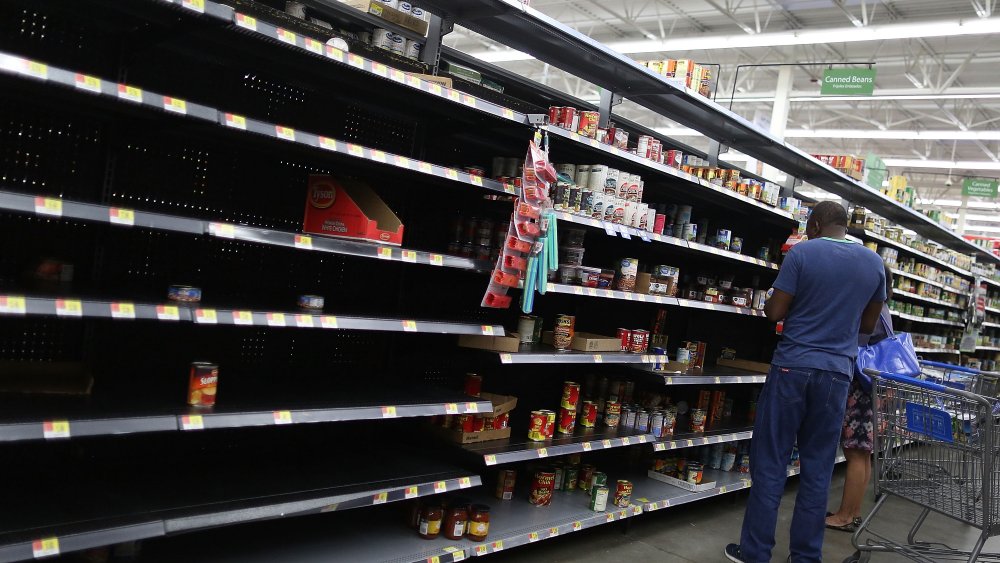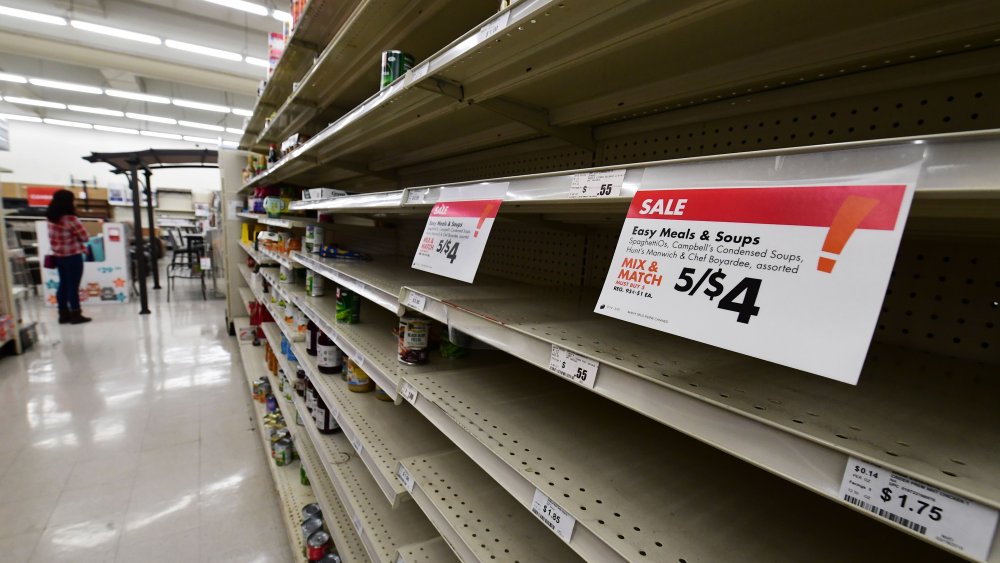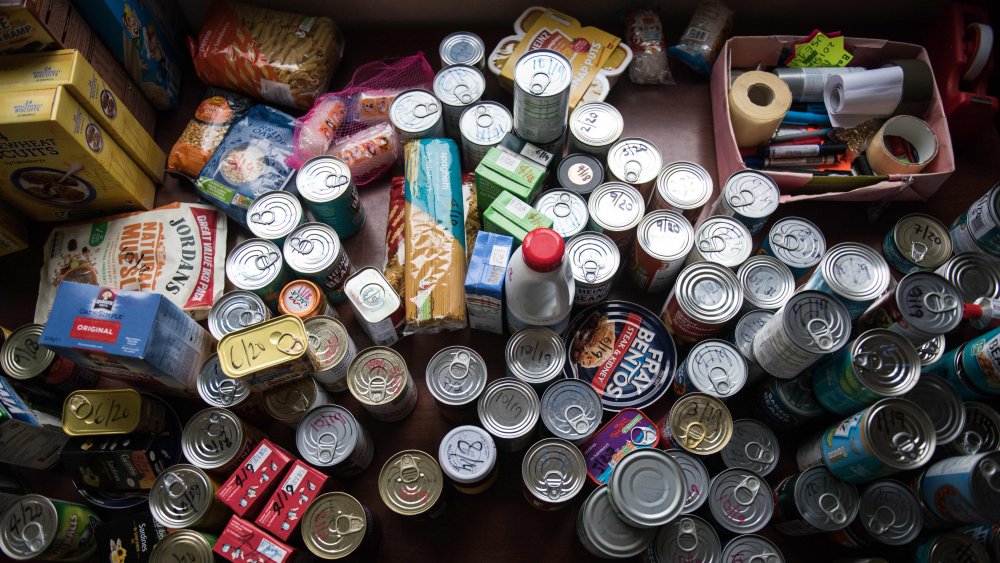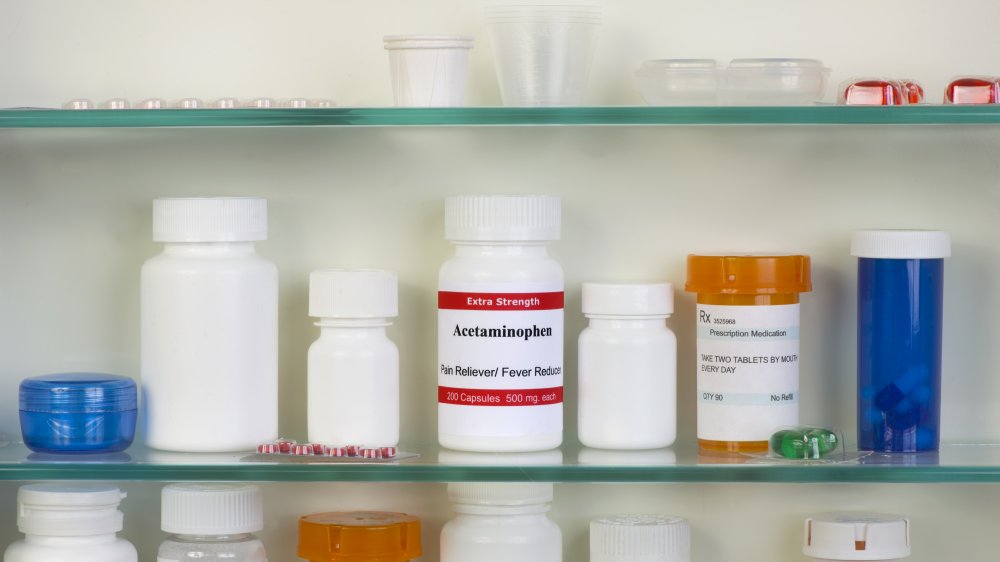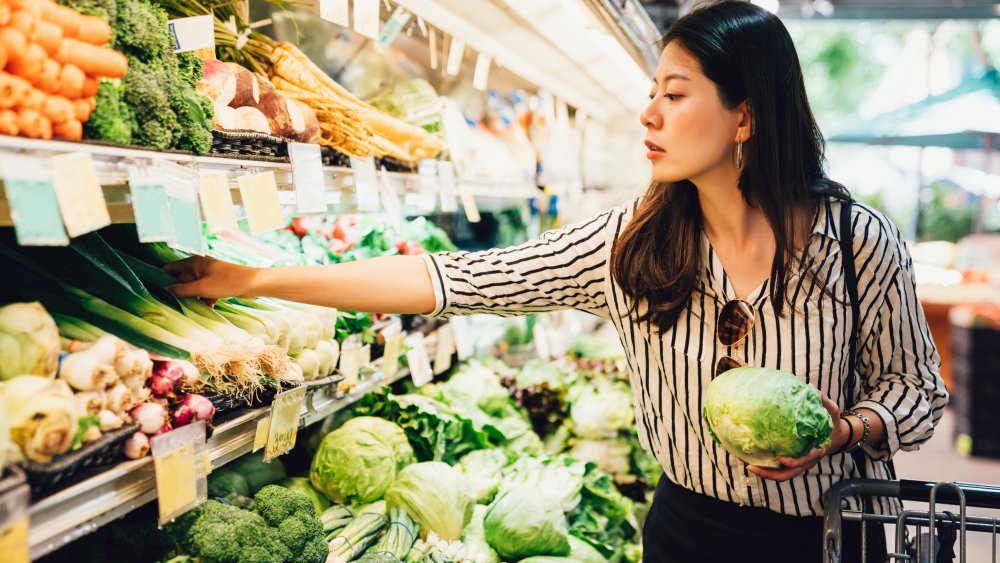The Real Reason Grocery Stores Can't Restock Their Shelves
If you've been to a grocery store lately, you've probably noticed that a lot of your favorite items are either missing or low in stock. In some cases, entire stretches of grocery stores are bare. Why are grocery stores having so much trouble stocking their shelves?
Unless you've taken social distancing to the extreme and have completely shut down the outside world, then you know that the current coronavirus (also known as COVID-19) pandemic is escalating every day. People who are worried about the future have been panic-buying everything from toilet paper to water, either because they're worried about potentially being quarantined or because they don't want to face a shortage of goods.
Ironically, it's this panic-buying that is leading to a shortage of goods in the first place. Stores like Walmart are cutting their hours and putting purchase limits on high-demand items, but household staples are still flying off the shelves. This may lead some people to think that food production is slowing down, but that simply isn't the case. "There is food being produced," Julie Anna Potts, chief executive of the North American Meat Institute, told The New York Times. "There is food in warehouses. There is plenty of food in the country."
Don't give in to the urge to panic-buy
Costco COO Ron Vachris confirmed that bare shelves are being caused by people buying things more quickly than usual. "Our stores are getting stocked every day," he said. "Transportation is functioning, our suppliers are working around the clock and the flow of goods is strong."
If you're worried by empty grocery shelves and feel tempted to hoard what you can, resist the urge as you'll only be making the problem worse. "Panic-buying happens when people worry about the scarcity of supplies," Steven Taylor, a professor and clinical psychologist at the University of British Columbia, told NBC.
He added, "If you see other people stocking their shopping carts in an anxious frenzy, then that can increase the fear or anxiety in other shoppers, leading people to worry about the scarcity of food, medicines or hygienic supplies... This creates a sense of urgency and leads people to over-buy, that is buying more supplies than they really need, just to be on the safe side. This can create real shortages because people buy more than they need."
You don't probably don't need as much food as you think
While it's important to have some canned goods and household essentials in store in the event of an emergency, you probably don't need to stock up as much as you think you need to in the current pandemic. Dr. Keith Roach, an internist at New York-Presbyterian Hospital, told Men's Health that people should have two weeks of supplies at home. He recommended picking foods you enjoy as well as frozen produce — not just canned goods.
You also don't need to stockpile bottled water if you live in an area with safe and reliable tap water, as the water supply is extremely unlikely to be disrupted in the COVID-19 pandemic. "I see people going out to buy bottled water, and that's insane," said Roach.
What else should you stock up on?
It's also smart to have some cleaning supplies on hand, but again, don't go overboard. You only need bleach and hand soap to keep your house clean during the outbreak. "You can't find things like rubbing alcohol or Clorox wipes because people are in a panic," pandemic planner and crisis management expert Regina Phelps told CNBC Make It. "Bleach is super cheap. While it will stain some things and you can't use it on everything, you can use it in your bathroom and on your doorknobs and stuff like that. So you don't really need fancy cleaning stuff."
You should also have medicine on hand, but you don't need masks unless you're caring for someone who is sick. The American Red Cross recommends having an extra supply of prescription meds to last a month or two. They also recommend having a one-month supply of over-the-counter medications, including pain relievers, cough and cold medicine, and a daily multivitamin.
Also make sure to have acetaminophen on hand, as anti-inflammatory painkillers such as ibuprofen may not be safe to take if you have COVID-19.
Most of all, try not to panic
These are trying times, but it is important to stay calm — there really is no need to buy out half the grocery store. While many areas are issuing shutdowns of non-essential stores and businesses due to the coronavirus outbreak, grocery stores are remaining open (via Forbes).
If you do need to make a grocery run, remember to keep your distance from other shoppers, and make your trip as quick as possible. Make a list of needed goods before you go, rather than leisurely browse the aisles of the store. Also don't forget to practice good hygiene — keep washing those hands!
